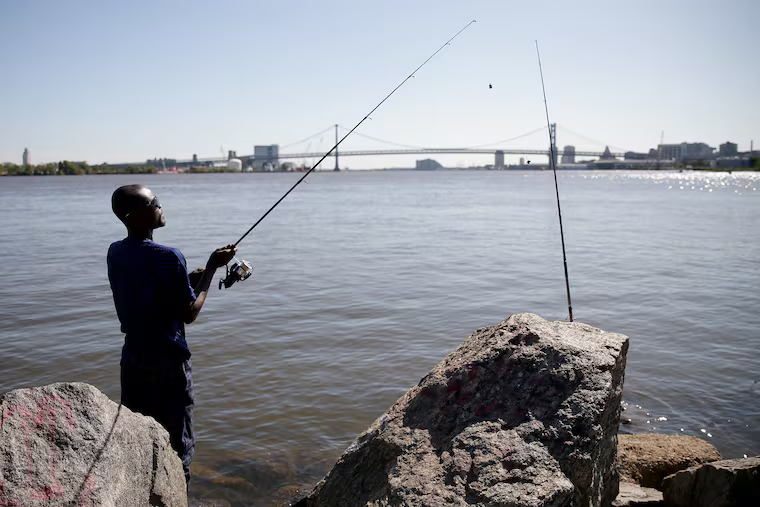Philly has its first dry week in more than 10 months after wettest one-year period on record
Drought has been scarce in the 21st Century, with record rains. Could that be changing?

Officially, as of Sunday, Philadelphia had experienced seven consecutive days without a drop of rain, and what is perhaps most remarkable about it is that the region hasn’t had such a dry run since last December.
“That’s pretty impressive,” Brad Rippey, a meteorologist with the U.S. Department of Agriculture in Washington, said Monday. "But I think it tells you more about how wet it’s been.”
True.
“Since about mid-July last year until this past week, we were in an especially wet pattern,” said Sarah Johnson, a lead meteorologist at the National Weather Service in Mount Holly. For the calendar year, she added, “We’re still 6 inches above normal.”
» READ MORE: Rain records fall in Pa., N.J. as nation marks its wettest year on record
Various research has linked increasing worldwide temperatures to enhanced rainfall; warmer air would hold more moisture. The 12-month period that ended Aug. 31 was the wettest period on record in Pennsylvania, New Jersey and Delaware and a swath of the nation from Maine to Texas, according to the National Center for Environmental Information.
Likely related to all that wetness, the nation has been remarkably drought-free.
In April, only 2% of the country was in some state of drought, said Rippey. That was a record low in the 20 years of the weekly index published by the U.S. Drought Monitor, a government-academic partnership.
That figure has since jumped to 14%, and the change of seasons might be bringing a change of drought fortunes, he said.
» READ MORE: Autumn off to steamy start in Philadelphia
“These last 30 to 60 days have been very dry,” he said, especially in the eastern half of the country.
Philadelphia remains somewhat of an oasis, he said, even though only 0.75 inches of rain have been measured this month and precipitation is 2.2 inches below normal for the last 60 days.
The deficits are worse not far away, said Rippey’s colleague Eric Luebehusen. “Once you get outside of Philly, it goes downhill quickly,” he said. “It is remarkable to me, the local contrast. Once you get past King of Prussia the values drop off rapidly.”
For the 60-day period that ended Sunday, Philadelphia’s citywide rainfall was about 75% of normal, according to the Middle Atlantic River Forecast Center. In Chester County, it was less than half of normal.
In New Jersey, Luebehusen said, to find larger deficits, “you don’t have to get very far up the turnpike." Rainfall is about half normal throughout Mercer County. To the south, it’s less than 40 percent in New Castle County, Delaware.
Top soil is drying out rapidly in the Mid-Atlantic region, Luebehusen said.
It has been quite a while since the Philadelphia region experienced widespread drought. The last time that the city and all its Pennsylvania collar counties were in a state of drought emergency and/or warning was at the end of 2002.
That’s according to state Department of Environmental Protection records that date to 1980. Until 2002, those conditions were occurring, on average, every three years.
Like so many things in life, it’s impossible to know whether you’re in a drought until after you’re in one, and it is impossible to say whether the dry run will continue.
In the meantime, Luebehusen says Philadelphians should be generous with their relative wealth of wetness: “You guys have to send some of your soil moisture somewhere else.”
.